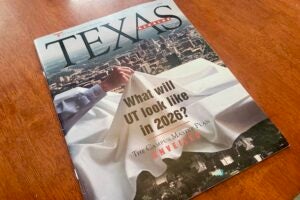A friend recently told me a story of a very successful business owner who had recently sold his company to family members, having spent the previous few years transitioning out of the day-to-day management activities. But retirement didn’t suit him well, and he soon found himself back in the office but without responsibilities or authority. This left him unhappy as he spent his days staring at the walls of his office. My friend lamented that if this formerly vibrant owner didn’t find a new way to engage and contribute, the man would continue to decline and may not survive another five years.
We live in a time when traditional retirement is taking on radically new meanings. In a recent book, “The Longevity Economy,” author Joseph Coughlin posits the “second half” of life as becoming increasingly vibrant and meaningful. Whereas in the past, workers even as young as their 40s were viewed as past their prime, today’s older generation can be expected to make great contributions into their 60s, 70s, and beyond. Businesses and our society can thus radically benefit through a better understanding of, and engagement with, this growing population.
So how do we best leverage this segment? Far from seeing their “golden years” as a time to kick back and relax, many in today’s AARP set are using this life stage to identify opportunities to give back and to reinvent in exciting new ways.
Indeed, remaining healthy and vibrant is, in part, a function of staying mentally engaged. Although they may now be free from the constraints of the standard workday, this segment of the population still has the need and ability to contribute in valuable ways and may be uniquely positioned to help prepare the next generation to take on the challenges of tomorrow.
As Texas-based entrepreneur John Paul DeJoria says, “Success unshared is failure.” Finding optimal avenues to give back and share, however, can prove difficult. As a society, we must create better opportunities for people to invest in the next generation, inspiring them with compelling ways to share and contribute.
While we often think of such investments in financial terms, the opportunity to give back is much broader, encompassing the sharing of ideas, insights and life lessons learned. These types of interactions yield a significant return on investment, as research has shown that the best ideas frequently emerge when pairing fresh, developing perspectives with the wisdom that comes from those with years of experience.
One such unique effort is underway at The University of Texas at Austin, where accomplished, later-in-life individuals now have the opportunity to return to campus for a “deep dive” academic-year experience as “Tower fellows.” Fellows will be seated side-by-side with students, taking those classes they always wished that had taken, or courses that may help them as they pivot in a new direction. Dedicated seminars and workshops will equip them to contribute in areas where they feel a passion to engage. Topics on social issues or governance or nonprofit leadership could significantly enhance their ability to give back in their communities.
Similar programs have been launched with great success at Stanford University and Harvard University. Other schools also would do well to consider deeply engaging this population, for while this will be an invaluable experience for participants, the benefits to the campus, and to the community at large, are expected to be even greater.
For example, faculty members will benefit from having these nontraditional students in classes, as their experiences yield perspective and insights that add considerable value. The university environment thrives upon the interchange of new ideas. Asking new questions from different perspectives leads to new research that propels our knowledge forward.
This type of engagement represents just one possible way to help today’s broadening base of smart seniors. We all benefit by identifying mechanisms to leverage, in valuable ways, the energy of this segment of society and ensuring that the wisdom that comes with their experience is not squandered.
Gaylen Paulson is an associate dean and executive director of the Texas Executive Education program in the McCombs School of Business at The University of Texas at Austin.
A version of this op-ed appeared in the San Antonio Expresss News, Waco Tribune Herald, and the Austin American Statesman.
To view more op-eds from Texas Perspectives, click here.
Like us on Facebook.




